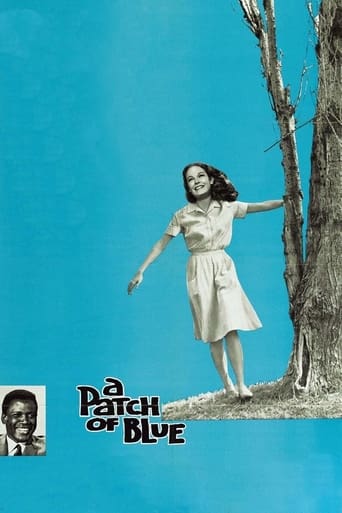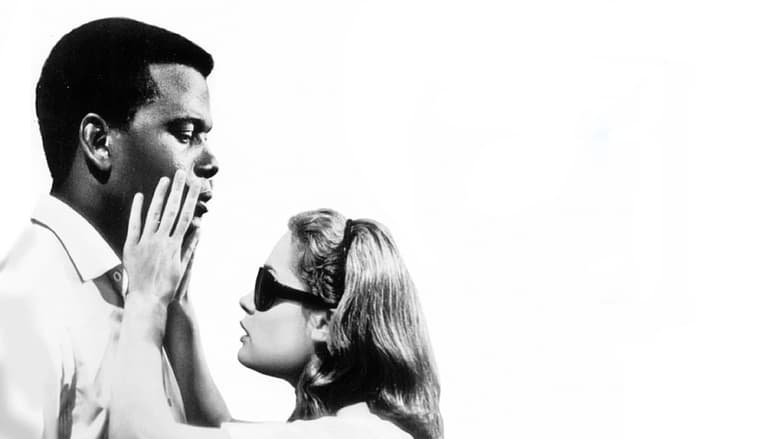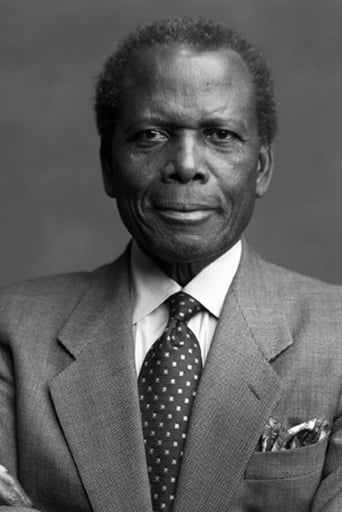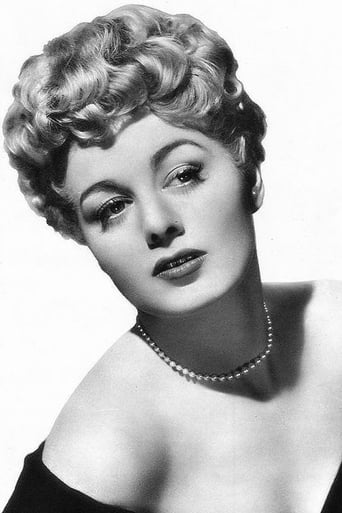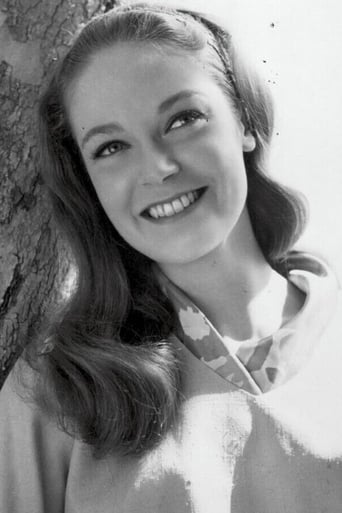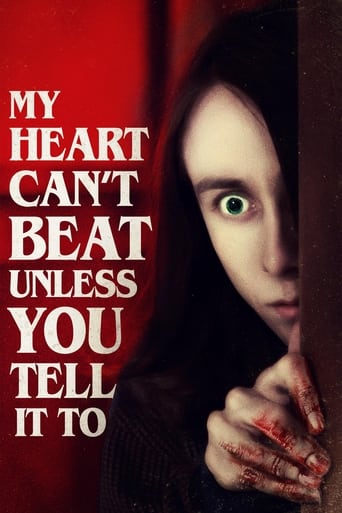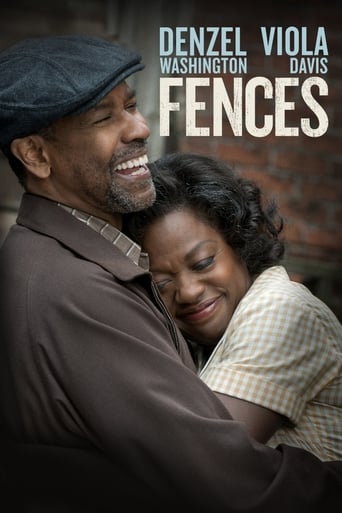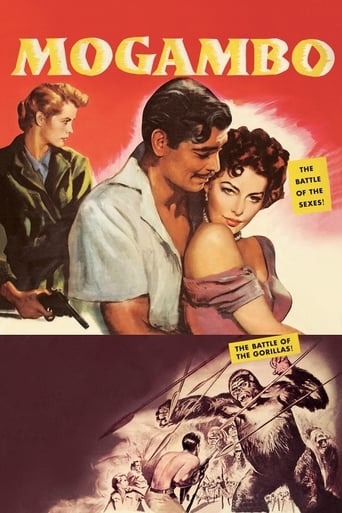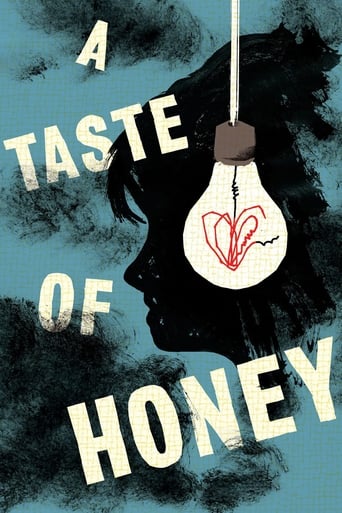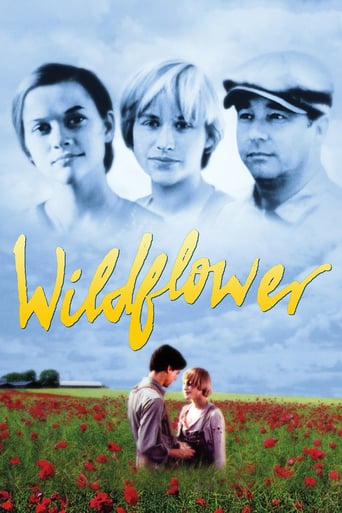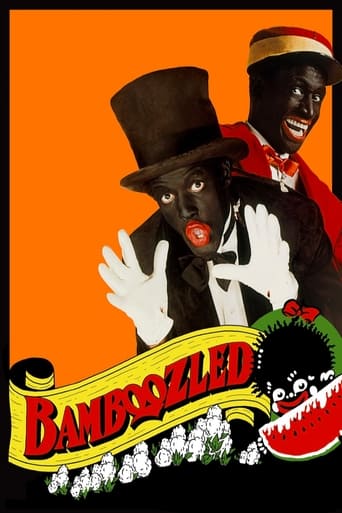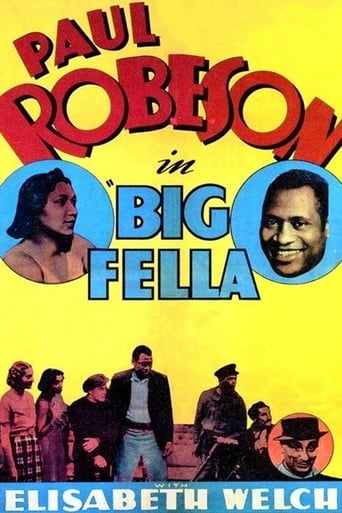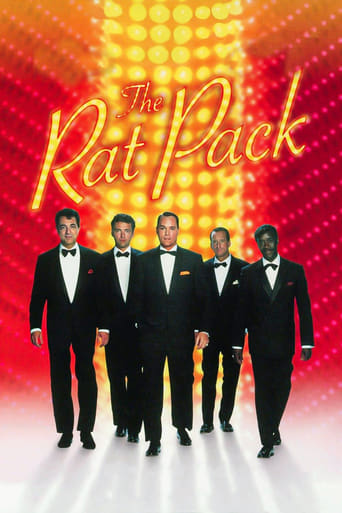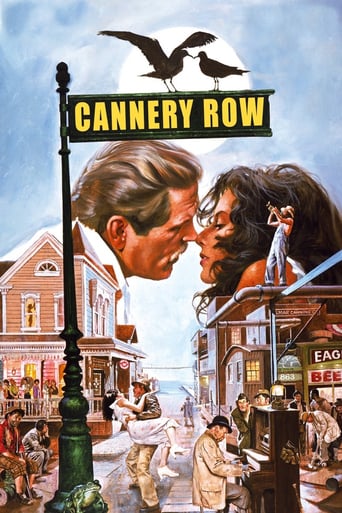A Patch of Blue (1965)
A blind, uneducated white girl is befriended by a black man, who becomes determined to help her escape her impoverished and abusive home life.
Watch Trailer
Cast


Similar titles
Reviews
There is so much going on in this movie. It's about the struggles of being blind in a sighted world. It's about the challenge of being black in a white world. It's about abuse and alcoholism. It's a romance of sorts. It's interesting social commentary. Fifty years later it runs the risk of being dated - because society has changed so much - and yet it didn't feel dated. It felt relevant. It got a reaction out of me. It's an absolutely marvellous movie; almost flawless. I came across it basically by accident, noted that it starred Sidney Poitier and thought I'd take a chance on it. It was one of the best decisions I've ever made.Mostly, this movie works because of the spectacular performances from basically all the members of the cast. I watched the movie because of Poitier's name - and he was superb - but the real standout of this movie was Elizabeth Hartman. As Selina D'Arcy she plays a young, friendless, naive and lonely blind woman who's basically trapped in an apartment with her abusive mother and an alcoholic grandfather. Hartman makes Selina wonderfully vulnerable - a sad character; one you can't help but feel protective toward, even just watching her on the screen. One day Selina gets to go to the park - against her mother's wishes. And she meets Gordon, played by Poitier. They become friends - very close friends, in a very innocent way. Gordon bonds with her, also protective toward her and generous to her and kind to her, and with absolutely no ulterior motive at all. It's a relationship between two vulnerable people - a black man and a blind woman. Selina doesn't know Gordon is black, and he doesn't tell her, but that means that even though she can't see, she sees him for what he is - kind, generous, sensitive. "Beautiful" she tells him eventually, even after she's discovered that he's black. She falls in love with him. He loves her in return - whether he was "in love" with her is left as an open question. In some ways his feelings come across as more fraternal, or even paternal, and eventually Gordon sets himself to the task of getting her out of her mother's apartment and into a special school. The movie doesn't have a "happily ever after" ending. We're left not knowing what would become of their relationship - but the relationship between them was fascinating to watch as it developed. They shared a tremendous chemistry, and both put on spectacular performances. This was actually Hartman's acting debut. She was nominated for the Oscar for Best Actress - deservedly so, and it's hard to believe based on this performance that she never really made it big in Hollywood. Perhaps her brilliant performance as the troubled Selina was a by-product of the fact that she was herself a very tormented young woman who suffered from severe depression and eventually committed suicide at the age of 43. Poitier was his usual excellent self as Gordon, and Shelley Winters put on an outstanding performance as Selina's mother Rose-Ann. Rose- Ann was abusive toward Selina, treated her more like a servant than a daughter with a barely disguised contempt. My sense from the dialogue is that she was a prostitute, although I don't think that was stated outright. Toward the end of the movie, before Gordon helps Selina escape before Rose-Ann moved them with a friend to a new apartment, the impression was that Rose-Ann was going to use Selina as part of her business - presumably wanting to turn her into a prostitute as well. Winters was so convincing in the role that she heightened the sense of sympathy and protectiveness you feel for Selina. Forget Gordon. I wanted to reach into the screen and drag this girl out of that apartment and to a place of safety. Winters actually won the Oscar for Best Supporting Actress for this role. Wallace Ford had a lesser role, but was also very good as Selina's grandfather "Ole Pa" - and the fight scene between Ole Pa and Rose- Ann was caustic. As this was Hartman's first film, it was also the last film of Ford's career, that had stretched back to the late 1920's. Ironically, Poitier won nothing for "A Patch of Blue," and yet it was the biggest box office success of his career.This movie is almost perfect. Why "almost"? Well, my only quibble is that aside from a few stares there really didn't seem to be much reaction from anyone (except Rose Ann) to this very public relationship between a black man and a young white woman. That just didn't strike me as realistic. It's a minor thing, perhaps, but I kept waiting for someone to confront them with a "get away from that white woman" sort of comment - and it never happened. It is a minor quibble, but it was on my mind. But - almost perfect! (9/10)
What was there about Sidney Poitier. What was it that made him a standout star among Black and White audiences, at a time when almost nobody else achieved that. This film was not among his first, but it was one of those (also, like "Lilies Of The Field" and "To Sir, With Love") that began to establish him as a true movie star, although I would say it took "Guess Who's Coming To Dinner" to cement his position among the top tier of actors. And deservedly so. It's very difficult to be critical of his performance here.This was probably Elizabeth Hartman's most honored performance in her short career. It's got to be a challenge to portray a blind person as convincingly as she does here...and without flaw.Shelly Winters has a thankless role here, and I'm not sure quite how to react to it. Some here have said that in this role she is one-dimensional, and that may be true. A little better is Wallace Ford as the grandfather...an alcholic to perfection. And, it's interesting to see Ivan Dixon in something other than "Hogan's Heroes".I can't say that this is one of my favorite films, but it is one that impresses me. Thank God for Sidney Poitier!
Continuing the reviews of African-Americans in film in chronological order for Black History Month, we're now at 1965 when Sidney Poitier stars as Gordon Ralfe in this movie about his mentoring a poor blind young woman whom he meets one day when she comes to the park for the first time. Her name is Selina D'Arcey (Elizabeth Hartman) and she has had to endure an abusive relationship with her mother Rose-Ann (Shelley Winters) and an alcoholic grandfather known as Old Pa (Wallace Ford). When she comes with Gordon to his apartment, his brother Mark (Ivan Dixon) warns him about the ramifications if anyone sees them though Gordon doesn't think he's that serious about her. I'll stop there and just say this was a very touching story handled sensitively by Poitier and Ms. Hartman. And Ms. Winters deserves her Oscar for making Rose-Ann such a hard woman to like though occasionally she does provide some humorous moments too. And after previously seeing Dixon as both Joseph Asagai in Poitier's A Raisin in the Sun and Duff Anderson in Nothing But a Man, he gives another fine performance here especially when he and Poitier are discussing the pros and cons of what Ms. Hartman's presence means in their apartment. One more thing I'd like to praise is Jerry Goldsmith's score. Such beautiful music! So on that note, A Patch of Blue is highly recommended.
This film is sad and effective,touching and indelible. Elizabeth Hartman is very sympathetic in this role as a blind teenager, growing up in a borderline white-trash home, with an alcoholic grandfather,and promiscuous down-at-heel mother,capably portrayed by Shelley Winters.Sidney Poitier delivers another effective performance here,as a sympathetic friend to Selena (Hartman) who tries to help better her life,even as his brother,a med student tells him to forget it, Selena is a hopeless case from "a human trash heap".The performances are touching and understated as one feels what it may be like to live as a disabled blind woman. Hartman is trampled and pushed to the ground simply because street people have no time to help her. The world is a cold place, but Poitier offers his friendship and compassion as a small patch of blue in Selena's otherwise dark world. Highly recommended.9/10.

